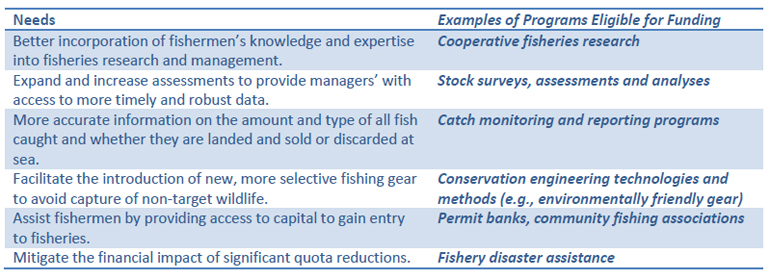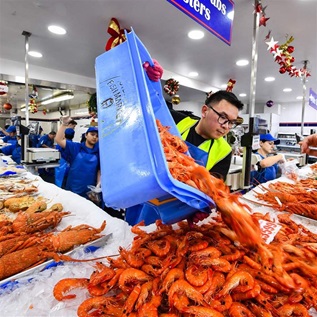The Fisheries Investment Act: Investing in New England's Fisheries and Fishermen
Sens. John Kerry (D-MA), Olympia J. Snowe (R-ME), John D. Rockefeller (D-WV), Scott Brown (R-MA), and Sheldon Whitehouse (D-RI) introduced the “Fisheries Investment Act (FIA) (S. 2184) on March 12. The companion bill (H.R. 4208) was introduced on March 19 in the House by Reps. Barney Frank (D-MA), Frank Guinta (R-NH), Edward Markey (D-MA), John Tierney (D-MA), Chellie Pingree (D-ME), Stephen Lynch (D-MA), Michael Michaud (D-ME), Joe Courtney (D-CT), William Keating (D-MA), and Timothy Bishop (D-NY). This new legislation would re-direct revenues from duties on imported fish products to support critical research, monitoring, and management programs, as well as provide assistance to fishermen and fishing communities.
The strength of Sen. Kerry's bill is that it puts the decisions about what fisheries projects to fund in the hands of regional fishermen and scientists who bring their perspectives and expertise to the issue.-John Pappalardo, CEO, Cape Code Commercial Hook Fishermen's Association
The bill restores the original intent of a law designed to invest directly in our nation's fishermen and fisheries through these revenues. Since 1979, the majority of these funds, estimated at $124 million for FY 2013, have been diverted into the general operating account of the National Oceanic and Atmospheric Administration (NOAA).
This legislation would create a regionally-based grant program that would direct 70 percent of the money (approximately $85 million in FY 2013) per year to fund fisheries research and management programs. The councils would establish investment committees responsible for identifying funding priorities and making recommendations on which specific projects should be funded in each region.
Stronger New England fisheries and fishing communities
New England is home to historic fishing communities and some of the nation's most valuable fisheries. The region is still recovering from decades of overfishing that have left fish populations depleted and the businesses that depend on them struggling. Funding through FIA could help restore New England's fish and fisheries by addressing these critical needs:

In addition to the regional grant program, the secretary of commerce (who oversees NOAA) may use the remainder of the funds for special fisheries needs and problems, including management of highly migratory species, seafood promotion, fisheries disasters, and no more than 10 percent for general NOAA operations.
During these difficult economic times, the FIA would invest directly in the management of our nation's commercial and recreational fisheries, which support an estimated 1 million jobs. This bill makes good economic and environmental sense.











